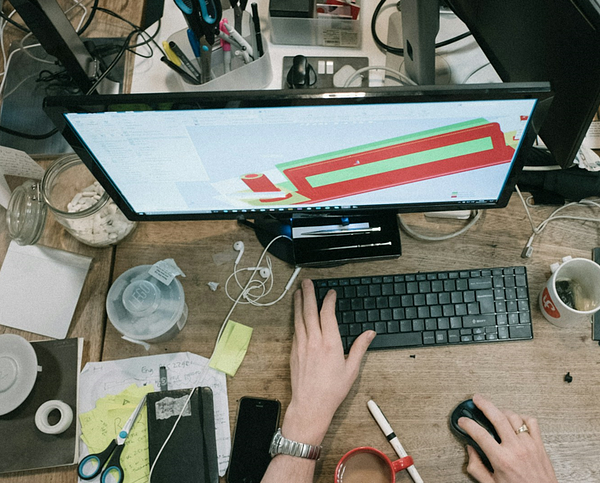Cluttered chaos: London workers have the messiest desks, survey finds

Forget neat and tidy – workers in London are most likely to face a ‘desk jungle’ each day, according to a new study which delves into the UK’s cleanest and messiest workspaces.
Taking into account the UK’s top ten populated cities, more than 47% of Londoners admit they have a messy main desk, whether that’s in an office or at home.
In the capital, one in five workers (21%) have been called out for their clutter by a colleague, while 31% with messy desks say the state of it makes them feel ‘overwhelmed’, ‘stressed’ or ‘embarrassed’.
But that’s not all; the study of 1,000 Brits by marketing agency Repeat Digital reveals how a fifth of Londoners have more than ten non-essential items on their desk, which excludes common essentials such as laptops, monitors, mouse, mouse mats and keyboards.
Dr Rebekah Wanic, a mindset psychologist at Vent to Reinvent, comments on why people may feel embarrassed about their workspace: “Because our workspaces can and are used as information for social judgement, people may feel embarrassed when their workspace is too messy because it may signal that they are not in control or on top of their work. I don’t think there is a need to feel embarrassed about a messy workspace unless it is messy in a way that interferes with others or with completing your own tasks.
“Social media is full of messages about how to do everything with someone claiming that one way of organising is better than another or that a certain type of colour scheme or set up is more optimal. Most of this is garbage! Individuals should experiment with what works best for them and their unique needs.”
Excluding plants and essential items, the ten most common objects to adorn Brits’ desks are:
Personal items bought by a friend or family member
Soft toys
Figurines and bobble heads
Trophies/football memorabilia
Rubber ducks
Fidget toys/stress balls
Lego
Pen holders
Picture frames
Calendar
In London, 63% of workers have enhanced their workspace with items that improve their physical health, such as ergonomic chairs and laptop stands, backrests, footstools and blue light screen protectors or glasses. Seven in ten (72%) have purchased items to benefit their mental health and well-being at work.




